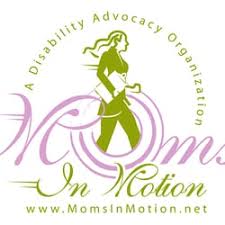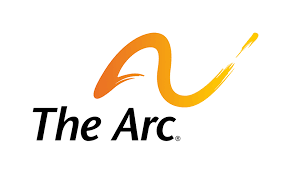| GREAT NEWS! DMAS HAS HEARD ALL OF YOU WHO HAVE BEEN STRUGGLING WITH THE EPSDT PERSONAL CARE CHANGE! Last year, Medicaid CCC Plus Waiver Personal Care for people under the age of 21 was changed. The change required new forms and a new process for authorizing Personal Care using standards for Early and Periodic Screening, Diagnosis and Treatment (EPSDT). It required the child’s doctor to fill out the DMAS-7 form and left no room for error. The changes were confusing and resulted in some young people experiencing a lapse in Personal Care services while waiting on the form and/or receiving fewer hours of Personal Care than they had in the past. The Virginia Department of Medical Assistance Services (DMAS) has worked with the federal Centers for Medicare and Medicaid Services (CMS) to reverse the change that was made last year. The new changes will be effective May 1 for people under the age of 21 who use the CCC Plus Waiver. Effective May 1, Personal Care hours for those under 21 who are on the CCC Plus Waiver will no longer go through Early and Periodic Screening, Diagnosis and Treatment (EPSDT)! What does this mean for those under 21 on the CCC Plus Waiver? It means you will no longer be required to get the DMAS-7 form filled out and signed by the doctor in order to get an authorization for Personal Care hours. Instead, your Service Facilitator will be able to do a plan of care which does not necessarily require input from your doctor (unless certain supervision tasks are needed), just like they used to prior to the EPSDT change on September 1, 2018. This is great news for all involved!!! For the time being, individuals with the Community Living (CL) or Family and Individual Supports (FIS) Waivers will continue to get the Personal Care authorizations through EPSDT. Also, those on straight EPSDT that do not have a waiver will continue to need the DMAS-7 filled out by the doctor in order to get an authorization for Personal Care hours. Also those with the CCC Plus Waiver that receive Personal Care hours in school, these Personal Hours will also be through EPSDT. A few Q’s & A’s. Only applies to those under 21 with a CCC Plus Waiver: Q: So is EPSDT totally gone? A: No, for those on the Community Living (CL) Waiver, Family & Individual Supports (FIS) Waiver, and for those with Medicaid under 21 getting Personal Care through EPSDT and not on a waiver, EPSDT will continue to exist. Also, for those under 21 with a CCC Plus Waiver who are getting Personal Care hours in school, those specific hours will still be requested through EPSDT. For all of these individuals, Personal Care hours authorization will continue to require a DMAS-7 from the doctor. Q: What if my authorization for Personal Care ends on 4/29/19? My new authorization will start on 4/30/19, so do I need a DMAS-7 from my doctor? A: You, will still be required to get a DMAS-7 form from your doctor up to and through 4/30/19 as this request will still have to go through EPSDT. Q: What if my authorization for Personal Care ends on 4/30/19? My new authorization will start on 5/1/19, so do I need to get the DMAS-7 from my doctor? A: No, your Service Facilitator will write your plan of care using their own assessment and visit data. This will still require the Employer of Record to review and sign the plan of care. Q: What if my Personal Care hours were reduced when I submitted the DMAS-7 form? Do I get those hours back now? A: No, not necessarily. In cases where there is a clear justification for requesting an increase in hours, a new request for authorization can be done to try to get that increase. Please work with your Care Coordinator and Service Facilitator if you think this applies to you. Also, there is no guarantee that a new request with an increase will be approved or that you will get back all of the hours you had prior to the change. Q: What if I made the decision to just use Respite hours instead of dealing with the DMAS-7? Can I now get Personal Care hours back without getting my doctor involved? A: Yes! On and after May 1, 2019, you will no longer be required to get the DMAS-7 form filled out by your doctor in order to get Personal Care hours. Simply contact your Service Facilitator and schedule a visit if you haven’t had a recent one. Again, this will be a new request and does not guarantee you will get the same number of hours you had prior to the change. Q: What if my Personal Care hours lapsed while I was trying to get the DMAS-7 from my doctor, will I be able to get my authorization back dated to cover that gap now? A: Unfortunately, no. An authorization for hours starts the day it is submitted to the approving organization (MCO’s) and unfortunately cannot be backdated. If there is no authorization in place, Personal Care aides should not be working. Q: Does this change mean that I cannot get more than 35 hours per week of Personal Care? A: No it does not. In cases where there is a clear reason and thorough justification for more than 35 hours, a request can be made for more. Again, there is no guarantee that a request for more than 35 hours will be approved for more than 35 hours. Please note: In an effort to get authorizations in place for those of you that are affected by this change and who are our Moms In Motion clients, we may need some information from you. In order to protect your personal health information, we will likely ask for that information via secure email. It will come from Zixmail. Often, these emails go to spam. If your Service Facilitator tells you that they are sending you a secure email, please be on the lookout for it and respond to it quickly as it may impact your re-authorization for Personal Care hours. |
| Webinar to Learn More! A webinar has been scheduled for people with disabilities who are under 21 and their families to receive information directly from DMAS about this change. The webinar is not for personal care agencies and services facilitators (other training opportunities have been scheduled for them). Tuesday, April 30, 1:00pm Register Here After registering, you will receive a confirmation email containing information about joining the webinar. The webinar will be presented by DMAS and is sponsored by the Virginia Association of Centers for Independent Living. |
| Useful Links Moms In Motion congratulates all the parents who advocated to bring this change. Way to go! Efficient advocacy is needed to influence change in policy. Here are links you may want to bookmark for the future. Who is My Legislator? DMAS Appeal FormsThe Virginia Ombudsman |
| Keep an eye out for our newsletters. Moms In Motion’s newsletters will keep you informed! Moms In Motion will be sending weekly updates to you on this topic. Some of the info may repeat, but we will also add any new information we learn. Be sure you are subscribed to our newsletters, here. |



